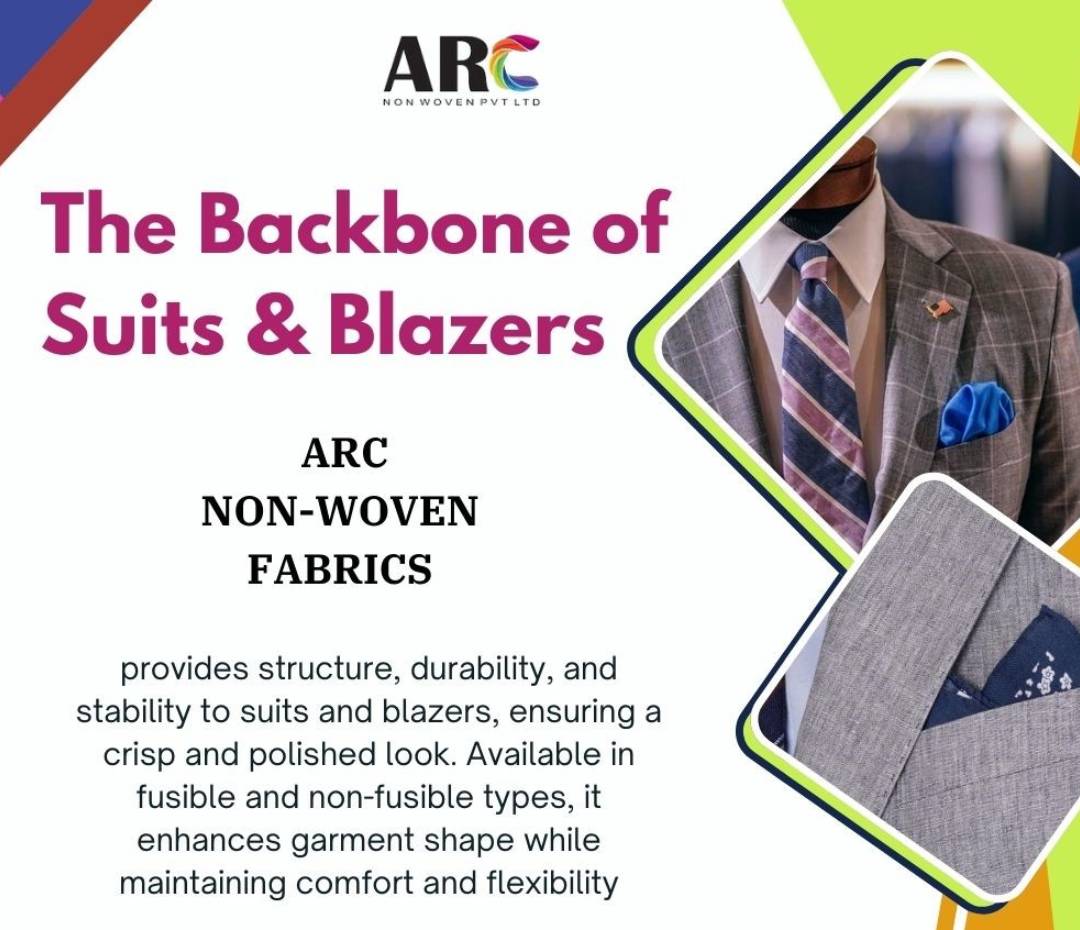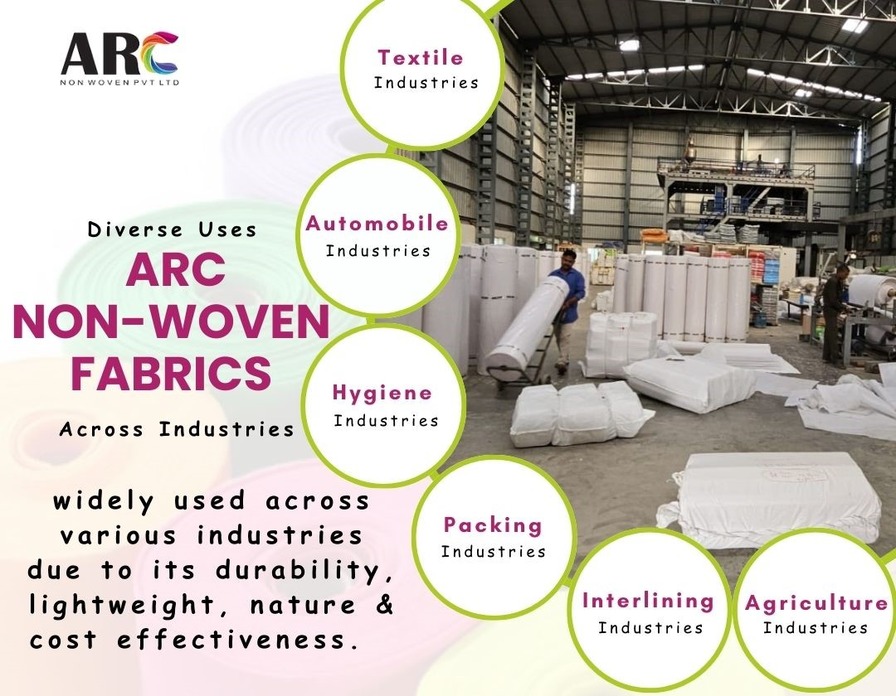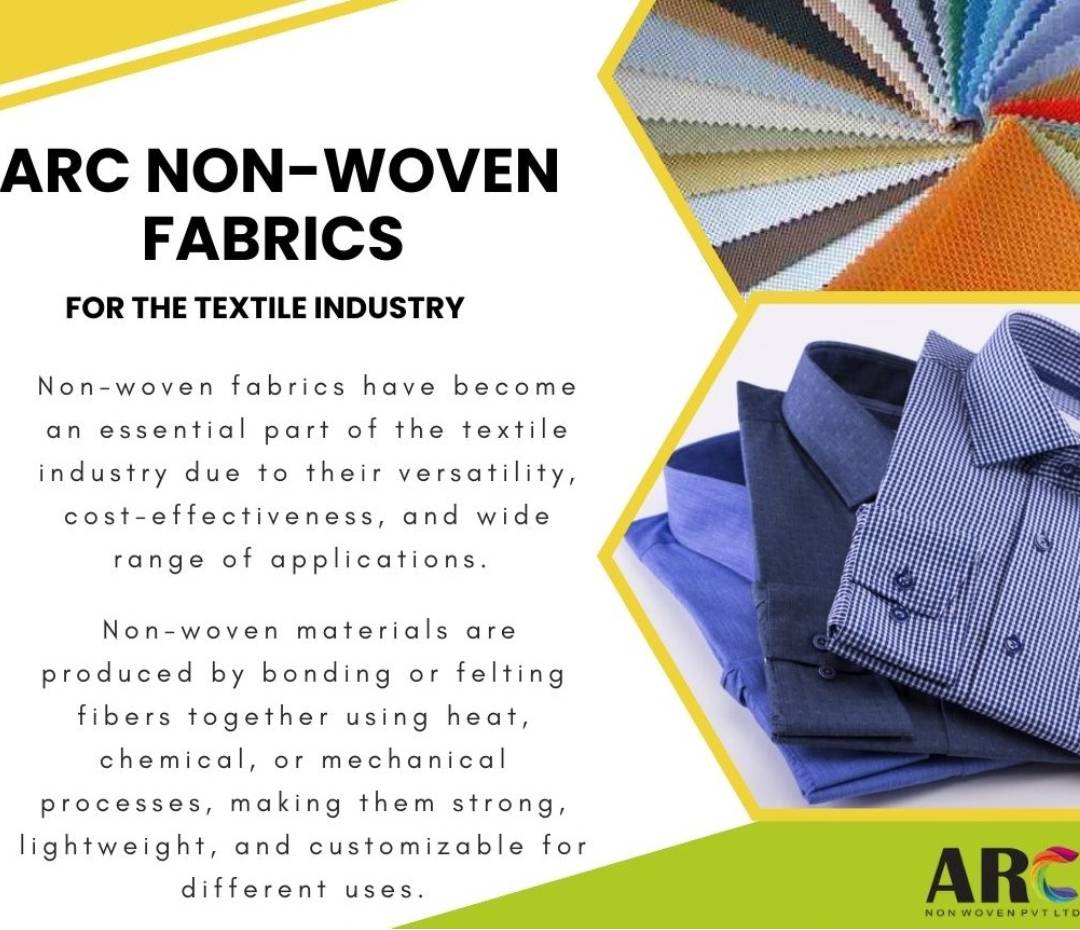Innovations with ARC Nonwoven Fabric in Multiple Sectors
Explore the various implementations of ARC Nonwoven Fabric across different sectors. Learn how these innovations are revolutionizing industry norms.
Read More
A well-fitted suit or blazer isn’t just about choosing the right fabric or color. Its structure and construction are what make it look sharp and feel comfortable. Whether you’re dressing for work, a wedding, or an important meeting, a suit’s design plays a big role. The way it’s built affects how it fits, how long it lasts, and how good it looks. Many people think all suits are the same, but the truth is the way they’re made matters a lot. Knowing the key structural elements helps you pick a jacket that not only looks great but fits perfectly too.
The canvas is the layer inside the suit that gives it shape. Think of it as the skeleton that holds everything together. There are different types of canvas:
Choosing the right canvas affects how the suit holds its shape and how flexible it feels. For example, a fully canvassed suit will drape nicely and look more natural. Fused suits might look stiff and lose their shape quickly. A well-structured blazer with proper canvas makes all the difference.
Stitching quality matters more than most realize. High-end suits often have hand-stitched seams, which are stronger and better at keeping the shape. Machine stitching is faster but less durable. Seams that are sewn carefully prevent puckering and stretching over time. Experts say that the way a suit’s seams are sewn can tell you a lot about its quality. Well-constructed seams mean fewer repairs and a better fit after wear.
Shoulder padding helps shapes how your jacket looks. Padded shoulders create a bold, broad look—perfect for a commanding style. Natural shoulders have minimal padding and give a softer, more relaxed vibe. Soft or no padding suits a casual look, while padded builds a more formal, strong silhouette. When choosing a suit, consider your body shape and styling goals. The right shoulder structure can make you look sharper and more confident.
The pattern of a suit is the blueprint that shapes the entire garment. A tailored fit follows your body curves for a sleek look. Off-the-rack suits often have less precise structure, which can lead to unwanted bunching or gaps. Custom-made suits are shaped to your exact measurements, offering superior support and comfort. Studies show that better fit can reduce returns and alterations by up to 30%. It’s clear that good patterning enhances the suit’s overall appearance and feel.
A well-structured suit feels natural and moves with you. Internal supports like canvas and padding help maintain posture and prevent sagging. If a suit lacks this support, it might look sloppy or feel uncomfortable after a few hours. During fittings, check if the shoulders sit right and if the lapels lie flat. These small signs show how thoughtfully the suit was built.
A long-lasting suit is no accident. Good structural elements protect it against daily wear. Strong canvases, sturdy seams, and high-quality linings prevent tears and deformation. Many expert tailors claim that suits with better construction can last decades if cared for properly. Regular maintenance, like brushing and minor repairs, keeps the shape intact much longer.
The best suits create instantly recognizable shapes—sleek lapels, sharp shoulders, and a tapered waist. Structure helps these features stand out, giving the wearer a confident, polished appearance. Different styles of suits— from classic to modern—use various structural techniques to achieve their look. For example, a sharp “V” shape is made possible by a tapered waist and padded shoulders.
The fabric you choose influences the suit’s structure. Wool, especially heavy-weight, keeps its shape well and looks crisp. Linen and cotton are lighter and may wrinkle more but lend a casual vibe. Blended fabric often strike a balance, offering durability and comfort. Steel wool or mesh weaves provide even more support, helping maintain sharp lines.
High-quality linings are more than just comfort layers—they support the outer fabric. They help the suit keep its shape over time and reduce wrinkling. Polyester, silk, or blended linings are common, and each has benefits. Choosing the right lining depends on climate and how often you wear the suit. Proper lining makes a suit look fresh, even after many wears.
Look for neat, even stitching when you examine a jacket. Check that the lapels roll smoothly and that the shoulders aren’t bulky or droopy. Feel the fabric’s weight and stiffness—premium suits feel substantial but not stiff. Well-constructed suits often have a slight sheen and a firm structure that’s easy to spot with your hands and eyes.
Always try on a suit and move around. Sit down, stretch, and lift your arms. A good structured suit shouldn't pull or bunch. Ask your tailor how much movement the shoulder and chest area allows. Comfortable suits support your posture without restricting your movement.
Inspect seams and the inside layer for signs of strong craftsmanship. Look for stitches that are secure, and canvas that’s evenly attached. When maintaining your suit, store it properly and avoid excessive washing. A durable suit will stand up to regular wear without losing its shape quickly.
The construction of a suit or blazer is what sets it apart. Properly built structures improve fit, add durability, and enhance style. Investing in garments with quality components like canvas, seams, and padding ensures you get long-lasting, sharp-looking suits. When shopping, prioritize structural quality over quick fixes or cheap materials to elevate your wardrobe and confidence. Remember, a well-made suit isn’t just a piece of clothing—it's an investment in your personal style.

Explore the various implementations of ARC Nonwoven Fabric across different sectors. Learn how these innovations are revolutionizing industry norms.
Read More
Discover how Arc Non-Woven Fabric are revolutionizing the textile manufacturing industry. Dive deep into the role it plays in the modern textile world.
Read More© Copyright 2020-2025 All Rights Reserved By ARC Non Woven Pvt. Ltd.